
By BY KAREN WEISE from NYT Technology https://ift.tt/2xrY3Hw

On the latest episode of the Social Distance podcast, Tricia Hersey of the Nap Ministry joins James Hamblin and Katherine Wells to explain the importance of rest and how to get enough of it.
Listen to their conversation here:
Subscribe to Social Distance on Apple Podcasts, Spotify, or another podcast platform to receive new episodes as soon as they’re published.
What follows is an edited and condensed transcript of their conversation.
Katherine Wells: Tricia, will you introduce yourself?
Tricia Hersey: My name is Tricia Hersey, and I'm the founder of the Nap Ministry, which is an organization that examines the liberating power of rest. We name sleep deprivation as a racial and social-justice issue. This project came out of my own experiences with exhaustion.
Wells: You have an undergraduate degree in public health, and you went to graduate school for divinity, so you're interested in both the science and spiritual aspects of rest, is that right?
Hersey: Absolutely. My undergraduate degree was in community health, and I was really interested in looking at the body in a holistic way.
Wells: Jim hasn't been sleeping for three months. He has been sleeping maybe five hours on average each night, but sometimes less. And he told me that he feels like every moment that he rests, he's not doing something that he should be doing.
James Hamblin: I am also just consumed by lots of worry for the world generally and for specific people in it. Normally I can put that aside and go to sleep. But these are extenuating circumstances.
Wells: Jim knows the science. He knows that he's putting his health at risk by not getting enough rest. But I can't get him to take it seriously. He just doesn't seem to care. I was hoping that you could help.
Hersey: It sounds like he is taking it seriously, and this is, like he said, an extenuating circumstance. I want to first uplift that I don't think there's any particular right or wrong way to deal with anything that's going on right now. I always say, Take it easy on yourself. This is a slow deprogramming. It's really about uplifting what is happening, removing those veils, and really sitting in the midst of right now. I think a lot of people are having issues with sleep right now. I'm not sleeping as well as I used to either, because I'm really worried as well about my family.
Hamblin: I don't feel constantly exhausted in the way that I would with real insomnia. I just hit these walls where I become so exhausted that I can barely function, and then I know I can sleep. But otherwise, if I have capacity in me, I am up.
Hersey: You said something important when you said that you feel like you could be doing something. You feel like, While I'm up and while I'm alive, every moment of the day needs to be filled with me doing something to help with what's happening. That may be a response to you being a doctor. People who go into this field have some sense of wanting to heal and help.
Hamblin: Yes, that is exactly it. This feels like a moment that I don't want to squander, because I studied public health and went to medical school and have a lot of knowledge about this, and there's a real problem with lack of information and lack of knowledge and lack of context here for a lot of people.
Hersey: I totally understand. A lot of my work is with people who are community organizers and movement leaders. They are on the front lines. They're working 80 hours a week. They are planning direct action. They really feel, How can I be resting right now when the people who are causing all of this oppression in our world are not resting? That's a true and real thing that we need to uplift before we can get to the point of giving someone a rest schedule and forcing them to follow it.
Wells: I was hoping I could just berate him into a nap. But your approach seems much wiser. What do you tell people who feel the way he does?
Hersey: I led a training with human rights activists all over the country, and I told them that they really had to understand rest as a spiritual practice. Rest is productive. When you are resting, you are being productive. I'm trying to reframe rest and deprogram people around the concept that if you aren't "doing something" in the classic sense, then you're not worthy.
I want to uplift that when you're sleeping, you are actually doing something. You're honoring your body. You are giving your brain a moment to download new information. You're disrupting toxic systems by reclaiming rest.
Hamblin: I'm curious about your own experience with being driven to exhaustion.
Hersey: When I first started thinking about this, I had started seminary. I was in divinity school. I had an 8:00 class. I'd be there by 6:00 in the morning, and then I wouldn't come home until after midnight sometimes. And after that, I would be up until 3:00 in the morning studying. That was hard. And I had a six-year-old son at the time. I was robbed while I was walking home from school with my son one day. Two of my family members died suddenly. And then right at that moment, Black Lives Matter was really heating up. And I was a community organizer and justice leader. I was dealing with being pulled to the front lines with that while I was still in school. And I was traumatized, in a way, by constantly seeing all of the murders that were happening, because everything was on video online. It was a lot of strife. And I was at a predominately white institution where there weren't that many people who looked like me there.
The stress of all of that, combined with trying to go through a really intense, high-level graduate writing program, I just couldn't take it. I felt like, I'm either going to just quit and just go lay on a couch, or I'm going to just go to school and try to get the attendance credit. I started sleeping all over campus. I was everywhere.
Hamblin: There should be more public spaces for people to take naps.
Hersey: That's why I started to think about collective napping and public napping. A lot of my work as an artist is public installation: All over the country we curate spaces for the community to rest in a safe place.
Wells: Is part of that about normalizing napping? Because napping is kind of embarrassing.
Hersey: There's a stigma around caring for yourself. Unless it's attached to capitalism, then it's okay. You can pay $200 for a facial, and then you're taking care of yourself. But if you're caring for yourself with something as deep as sleep, which is one of our most ancient and primal needs, if you're doing that in public, caring for your body, that's shameful. I tie that back to capitalism and to white supremacy and these notions around not seeing humans as divine and not seeing our bodies as belonging to us. When you start to deprogram around all the systems that have us at this point of sleep deprivation, where we don't think we are worthy of sleep.
Hamblin: That phrase you used, “worthy of sleep,” jumps out at me. I can see there's an issue there of someone in my position not deeming themselves worthy of that time, because something we've talked about a lot on this show is there are a lot of people who are suffering so much more than we are. But we need to take our own needs into consideration, deem those concerns worthy, and address them.
Wells: Tricia, once you talk to people and convince them of the idea that rest is something that is okay to care about and to prioritize, what do you say? I'm interested in your idea that we can change how we think about rest or what rest looks like. That it doesn't necessarily have to be eight hours of sleep a night. What do you suggest for different ways of thinking about resting?
Hersey: I lead this back to intuition and listening to the body. I want to reimagine rest to be a slowing down, a mindfulness, a paying attention. I believe taking moments of silence is a form of rest. Taking long baths. A longer shower. Prayer, meditation, daydreaming. Doing a sun salutation in the morning. Sitting on your couch for a few minutes before you rush out to do 300 more things, giving yourself ten minutes of intentional time listening to your body. And the time to rest is now, because it's not a privilege; it is our right. It's a human right.
Wells: I've been thinking a lot about essential workers, and I imagine a lot of people feel like rest is not even an option.
Hersey: That's the number-one thing I've heard. People say, Oh, you do the Nap Ministry? That sounds cute and nice, but who has time to rest? I could never do that. It sounds nice, but no.
This is what I always tell them: That is a part of the brainwashing of living under toxic systems. White supremacy and capitalism have stolen not only our rest, but also our intuition. To think that in this day and age, there's no time for you to at least take 10 minutes to reclaim rest and daydream and shut your eyes or debrief for a little bit longer before you go to shower, that is not true. That's all false and has been told to us by systems that don't see us as divine. Part of this rest resistance is also reclaiming your imagination and reclaiming hope, reclaiming your intuition of knowing what's right and knowing there's always time for you to reclaim your body as yours. Even those essential workers have ten minutes before they take a shower in the morning and go out, or while they're in the car, before they step into a hospital. There are moments when you can integrate rest throughout your day.
Hamblin: I worry right now that, especially as jobs are so few, a lot of people are feeling even more like they have to just keep grinding. It's going to be a dark period. I hope we emerge better for it. But this is a marathon; it's going to go on for a year or two. And this has helped me to realize that it doesn't help if I burn out in the first two months of it.
A U.S. Senate Democrat on Wednesday accused Republican Majority Leader Mitch McConnell of endangering the lives of Senate staff if he brings them back to work next week without effective safeguards against coronavirus infection in place. Senator Chris Van Hollen, whose state of Maryland contains several suburbs of Washington where federal workers live, said he had written to McConnell to demand details of how staff will be protected when the Senate returns to session on Monday. "I am ready to see senators resume work in the Capitol, but without effective safeguards in place, Mitch McConnell is endangering the lives of the staff who work there – including many of my constituents – and undermining regional efforts to prevent the spread of the coronavirus," Van Hollen said in a statement.
from Yahoo News - Latest News & Headlines https://ift.tt/2VLUyoG
Canadian prime Minister Jusin Trudeau has confirmed that one man has died and five others are missing after a Canadian military helicopter went missing during a NATO operation. Debris and the aircraft's black box have been found in the sea between Greece and Italy, a Greek military officer and public television said Thursday. Canada's armed forces said the helicopter had been involved in an accident after taking off from the Canadian frigate Fredericton on Wednesday. "Debris has been found in Italy's zone of control and intervention" in the Ionian Sea, the Greek military officer told AFP, specifying the wreckage belonged to the Canadian helicopter. Six crew were aboard the helicopter when it disappeared, the officer said on condition of anonymity. Greek public television reported that a body had been found amid the wreckage in international waters off the Greek island of Kefalonia. Greek public television ERT said Italian and NATO vessels were also taking part in the search while Turkey said one of its frigates was also involved. Canada said on Twitter that it contacted the family members of those who were on board the missing CH-148 Cyclone helicopter.
from Yahoo News - Latest News & Headlines https://ift.tt/2SnEx5Y
The Philippines protested on Thursday China’s designation of a disputed South China Sea reef, which it has turned into a heavily fortified island base, as a Chinese “administrative center.” The Department of Foreign Affairs issued a statement objecting to what it called China’s “illegal designation” of Fiery Cross Reef as a regional administrative center in the hotly contested Spratly archipelago. U.S. Secretary of State Mike Pompeo accused China last week of taking advantage of widespread distraction over the pandemic to advance its territorial claims.
from Yahoo News - Latest News & Headlines https://ift.tt/3bOryCa
A coalition of national women's advocacy groups drafted a letter urging Joe Biden to address sexual-assault claims by former staffer Tara Reade, but decided against releasing the letter publicly after the Biden campaign learned of the efforts, the New York Times reported on Wednesday.Instead, the unspecified groups decided to work with Biden advisers to try to pressure the campaign to address the allegations before the end of April, which is designated Sexual Assault Awareness Month.“Vice President Biden has the opportunity, right now, to model how to take serious allegations seriously,” the letter read. “The weight of our expectations matches the magnitude of the office he seeks.”As of April 30, a campaign spokesman has denied the allegations but Biden himself has not spoken about them on the record. The campaign circulated talking points to surrogates advising them to say the alleged incident with Reade “did not happen,” BuzzFeed reported on Tuesday.“It’s difficult for survivors to see that a woman who has more corroborating sources than most survivors have in similar situations is being tossed aside and actively being weaponized by cynical political actors,” Shaunna Thomas, a founder of women's rights advocacy group UltraViolet, which is involved in discussions with the Biden campaign regarding Reade's allegations, told the Times.The Times itself edited a story on Reade's allegation after the campaign complained. Initially, the report included the sentence, “The Times found no pattern of sexual misconduct by Mr. Biden, beyond the hugs, kisses and touching that women previously said made them uncomfortable.” The paper subsequently deleted the second half of the sentence.“Even though a lot of us, including me, had looked at it before the story went into the paper, I think that the campaign thought that the phrasing was awkward and made it look like there were other instances in which he had been accused of sexual misconduct, and that’s not what the sentence was intended to say,” Times executive editor Dean Baquet said.As media attention has become more focused on Reade, calls have grown over the past week to release Biden's Senate archive, currently held at the University of Delaware, which may offer new details that shed light on the allegations. Seven members of the university's Board of Trustees, including its chairman, have donated to the Biden campaign and affiliated PAC's.
from Yahoo News - Latest News & Headlines https://ift.tt/3bXfA9C
New satellite images showing the recent movements of luxury boats by Kim Jong-un, the North Korean leader, have provided further indications that he may be ensconced in his seaside villa in Wonsan, on the country’s east coast. The location of the reclusive leader has been a mystery since his unprecedented no-show at April 15 events to mark the birthday of his late grandfather and North Korea’s founder, Kim Il Sung. His absence, for the first time since he took power in 2011, unleashed a torrent of speculation about his health conditions, with unverified and conflicting reports claiming he was both recuperating from cardiovascular surgery and in “grave danger.” On Tuesday, commercial satellite imagery obtained by North Korea-monitoring website NK PRO showed boats often used by Kim had made movements in patterns that suggested he or his entourage may be in the Wonsan area. “Extensive analysis shows that similar leisure boat movements at an exclusive villa in Wonsan and a nearby island near the Kalma peninsula have aligned with Kim’s public appearances in the area in every one of a half-dozen instances since last summer, and many more dating back to 2013,” it said. The imagery adds to earlier satellite pictures studied by the Washington-based North Korea monitoring project 38 North, which appeared to show that a train similar to Kim’s was parked in the resort’s so-called “leadership station” reserved for the use of the Kim family a week ago.
from Yahoo News - Latest News & Headlines https://ift.tt/2YhNge2
US Secretary of State Mike Pompeo on Wednesday criticized South Africa and Qatar for accepting doctors from Cuba to battle the coronavirus, accusing the communist island of profiting from the pandemic. Cuba's globe-trotting doctors have long been a source of diplomatic soft power and pride for Havana, but Washington says the medical workers only benefit the government and has encouraged them to defect. "We've noticed how the regime in Havana has taken advantage of the COVID-19 pandemic to continue its exploitation of Cuban medical workers," Pompeo told reporters.
from Yahoo News - Latest News & Headlines https://ift.tt/35fPzj7
Nearly 90% of U.S. House of Representatives members have signed a letter urging the Trump administration to increase its diplomatic action at the United Nations to renew an arms embargo on Iran, congressional sources said on Thursday. In a rare show of bipartisanship, at least 382 of the 429 members of the Democratic-controlled House - Democrats and Republicans - have signed the letter to Secretary of State Mike Pompeo urging him to work with U.S. allies and partners to extend the embargo, as well as U.N. travel restrictions on Iranians involved with arms proliferation. "The U.N. arms embargo is set to expire in October, and we are concerned that the ban's expiration will lead to more states buying and selling weapons to and from Iran," said the letter, seen by Reuters and led by Representatives Eliot Engel, chairman of the House Foreign Affairs Committee, and Mike McCaul, the committee's top Republican.
from Yahoo News - Latest News & Headlines https://ift.tt/2SnNmNb
The Food and Drug Administration will authorize the emergency use of the antiviral remdesivir on COVID-19 patients as soon as Wednesday, a senior administration official told The New York Times. Pharmaceutical company Gilead Sciences revealed promising study results involving remdesivir on Wednesday, but the FDA's reported move would still sidestep the usual testing required to authorize a drug's usage.Gilead said Wednesday that its own trial, as well one overseen by the National Institute of Allergy and Infectious Diseases, met its goals. Of the study's 397 severe COVID-19 patients, at least 50 percent of patients treated with a 5-day dosage of remdesivir improved and more than half were discharged from the hospital within two weeks. The overall mortality rate of the study was 7 percent, and relatively few patients developed bad side effects. But the study wasn't evaluated against a control group, and it's unclear if those recoveries were natural or if remdesivir actually had something to do with them. Hard data from the study also hasn't been released yet.Anecdotal reports, including two published in The New England Journal of Medicine, provided more credibility for remdesivir in the coronavirus fight. But they also didn't compared the drug against a placebo. A study published in The Lancet concluded remdesivir was "safe and adequately tolerated" but "did not provide significant benefits over placebo."More stories from theweek.com Trump's 'mission accomplished' moment Gun-toting protesters' dramatic stand inside Michigan's statehouse, in 5 photos and videos The Justice Department is apparently working with conservative Christian groups to fight COVID-19 policies
from Yahoo News - Latest News & Headlines https://ift.tt/2zzWRCr
Satellite imagery showing recent movements of luxury boats often used by North Korean leader Kim Jong Un and his entourage near Wonsan provide further indications he has been at the coastal resort, according to experts who monitor the reclusive regime. Speculation about Kim's health and location erupted after his unprecedented absence from April 15 celebrations to mark the birthday of his late grandfather and North Korea's founder, Kim Il Sung. On Tuesday, North Korea-monitoring website NK PRO reported commercial satellite imagery showed boats often used by Kim had made movements in patterns that suggested he or his entourage may be in the Wonsan area.
from Yahoo News - Latest News & Headlines https://ift.tt/3aTqV9m


Every weekday evening, our editors guide you through the biggest stories of the day, help you discover new ideas, and surprise you with moments of delight. Subscribe to get this delivered to your inbox.
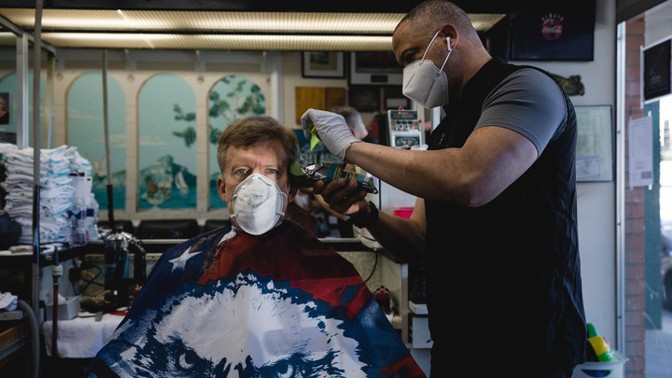
In some ways, shutting it all down was the easy part. Now government leaders must look ahead, toward the gradual reopening of public life—and the extraordinary tangle of moral and economic concerns that accompany it.
In the U.S., states lack the testing necessary to justify their reopening, which public-health officials warn will cost lives. But some are considering it anyway.
Here’s where things currently stand:
Georgia’s governor just went all in on reopening—a decision even Trump condemned. The aggressive choice “puts much of the state’s working class in an impossible bind: risk death at work, or risk ruining yourself financially at home,” Amanda Mull, who spoke with dozens of local residents for this story, reports.
States red and blue alike are beginning to test the waters. “Americans are not going to wait for sufficient testing. So what happens next?” Juliette Kayyem, a former Department of Homeland Security official, asks.
Meanwhile, Europe is facing the same terrible moral choices. “Negotiating between lives and livelihoods is not only a political and economic issue,” our staff writer Rachel Donadio reports from her home in Paris. “It’s a philosophical one, with consequences that will resonate for years to come.”
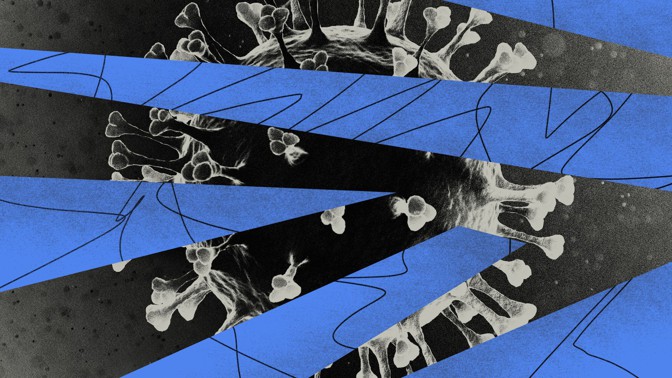
One question, answered: Why do researchers know so little about the coronavirus?
This is actually just how science works. “It’s less the parade of decisive blockbuster discoveries that the press often portrays, and more a slow, erratic stumble toward ever less uncertainty,” Ed Yong, whose pandemic coverage you might be following, explains.
The research process is painstaking, collaborative, and often contentious. Individual findings are not likely to upend what we already know; instead, evidence has to be stacked up and weighed against other evidence. Now, the spirited debates that once took months are happening in mere days—“and in full public view,” Ed notes.
What to read if … you just want practical advice:
View all of our stories related to the coronavirus outbreak here. Let us know if you have specific questions about the virus—or if you have a personal experience you’d like to share with us.
We’re looking to talk with individuals who are applying for unemployment insurance due to the pandemic. To share your experience, please write to us with your name, location, and relevant job details.
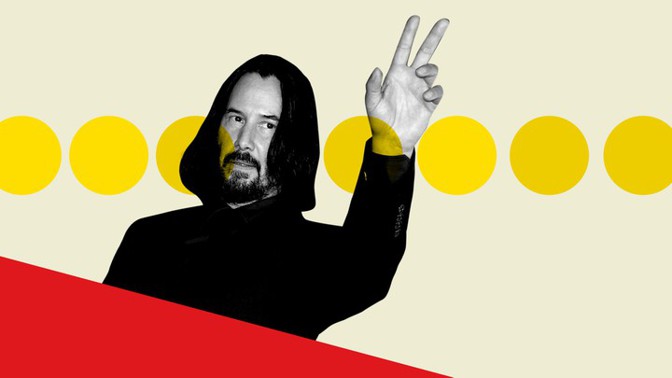
Tonight’s film: A Scanner Darkly (2006)
All week, we’re exploring the multi-decade career of Keanu Reeves, by revisiting five essential films. The fourth pick in our series is A Scanner Darkly. Our critic David Sims explains:
My personal favorite among Keanu Reeves’s performances is his dreamy, grim work as Bob Arctor in A Scanner Darkly, Richard Linklater’s adaptation of Philip K. Dick’s 1977 novel. The film is a marvel to look at, shot in live action and then animated (a process known as rotoscoping), which lends a trippy atmosphere to its tale of a dystopian war on drugs. Reeves grounds the project in his role as an undercover cop addicted to the future drug Substance D, and the character harbors a deep well of sadness as he struggles to keep a hold on his disintegrating self. Linklater taps into Reeves’s innate unknowability, and has him reflect that in Arctor’s ongoing identity crisis.
Participate in the discussion using the Twitter hashtag #AtlanticMovieClub or by replying to this email with your thoughts. Be sure to check back tomorrow for the last pick.
This email was written by Caroline Mimbs Nyce, with help from Isabel Fattal, and edited by Michael Owen. Sign yourself up for The Daily here
Britain is to stockpile non-medical face masks for people to wear while shopping and on public transport after Nicola Sturgeon recommended the use of t-shirts and scarves. Michael Gove, the Cabinet Office Minister, confirmed that a "domestic effort" has been launched to slow the spread of coronavirus by producing masks that "limit the droplets that each of us might be responsible for". Challenged by Labour's Rachel Reeves to build up a stockpile for the public, he also told the Commons they would not be the "high-spec surgical face masks" required in the NHS but could be used in "particular settings." Whitehall insiders said the Government wants to delay an announcement over its guidance for England on wearing face coverings until enough have been stockpiled. Unlike Ms Sturgeon, they said UK ministers were not happy with telling people to use cloth coverings, which they think "will not do any good at all" at slowing the virus. The announcement came after the Scottish First Minister published official guidance that Scots over the age of two should wear a cloth covering, such as a scarf or t-shirt, in "enclosed spaces" indoors where social distancing is difficult. She cited the examples of shops and public transport. Rather than protecting the wearer, the First Minister said the main benefit was helping prevent asymptomatic carriers who do not realise they have the virus from passing it on. The change ramped up pressure on Boris Johnson to follow suit in England, with Ms Sturgeon stating she assumed that UK ministers had seen the same scientific advice she had. But Matt Hancock, the Health Secretary, hit back by telling the daily Downing Street briefing that there was only "weak science" on face masks and "the most important thing" remains social distancing. He was backed by Dame Angela McLean, the Ministry of Defence's chief scientific adviser, who said there is "weak evidence of a small effect" of masks preventing carriers passing on the virus. She said the recommendation from the Scientific Advisory Group for Emergencies (Sage) to UK ministers, which they are considering before coming to a final decision, is "completely clear" on this.
from Yahoo News - Latest News & Headlines https://ift.tt/2Sh0bsN








Every weekday evening, our editors guide you through the biggest stories of the day, help you discover new ideas, and surprise you with moments of delight. Subscribe to get this delivered to your inbox.
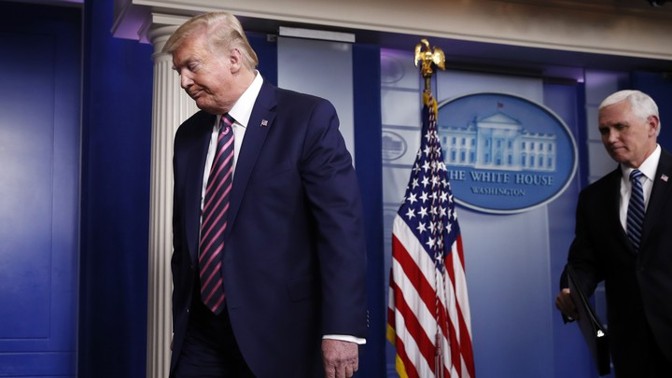
Let’s begin by recapping a fraught five days in Washington:
On Thursday, the president’s daily press briefing took a dangerous turn when Trump wondered aloud if bleach injections might be used to treat COVID-19. (Doctors quickly issued warnings.)
On Friday, he dismissed the comments as sarcasm.
By Saturday, he threatened to cancel these briefings altogether.
Yesterday, Trump “fired off” what my colleague David Frum called “a sequence of crazy-even-for-him tweets and retweets,” including a deepfake video featuring a likeness of Joe Biden. He also called for journalists to be stripped of their “Noble” prizes, both misspelling the award and, apparently, conflating it with the Pulitzers.
And today, the White House made good on Saturday’s threat, but only for a blip, canceling, then uncanceling, the afternoon press briefing.
The reversal doesn’t come as a total shock. Instead, it underscores the briefing’s relative importance in the Trump political playbook. Or, as my colleague Peter Nicholas put it: “It’s a fair bet that the free airtime and chance to push out campaign talking points are, for Trump, an irresistible draw.”
Here’s how to think about these daily dispatches from the White House:
They aren’t press conferences so much as “reality shows with no winners.” Trump is using them to build a dystopia in real time, Megan Garber argued last week.
Trump clearly loves the format. “In fact, it’s one of the few presidential duties he actually seems to enjoy,” our politics staff writer David A. Graham points out.
These briefings, by design, keep attention on the president. And with the 2020 contest looming, “incentives to further politicize the stage will only grow,” Peter predicted back in early April.
Trump’s foes watch the spectacle from afar, shot glasses nearby. “I start off with a beer and, depending on the magnitude of crazy, I could be on tequila before too long,” Michael Steele, a former Republican National Committee chairman and an MSNBC commentator, told Peter.
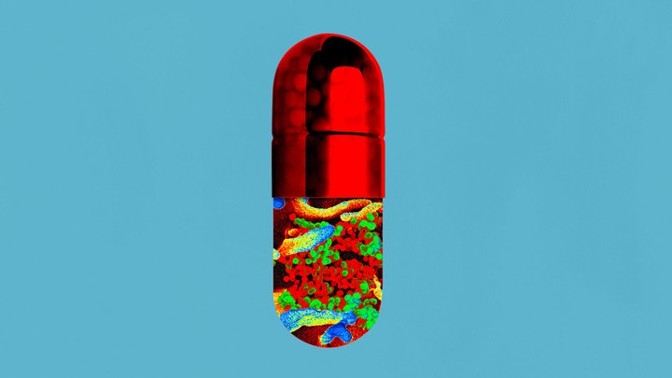
One question, answered: What would a coronavirus drug have to do in order to actually help a patient?
The challenge of fighting viruses is that they don’t have very many weak spots for a treatment to exploit. In order to succeed, a treatment would have to block the virus’s proteins from “hijacking, suppressing, and evading humans’ cellular machinery,” our reporter Sarah Zhang explains.
Researchers are exploring ways to defeat the virus at different stages—from stopping it at the earliest point, before it can even enter a cell, to treating a patient’s immune response once the virus has already taken hold. Sarah breaks down a few different steps in the disease cycle that could prove lasting targets for a treatment.
What to read if … you just want practical advice:
View all of our stories related to the coronavirus outbreak here. Let us know if you have specific questions about the virus—or if you have a personal experience you’d like to share with us.
We’re looking to talk with individuals who are applying for unemployment insurance due to the pandemic. To share your experience, please write to us with your name, location, and relevant job details.
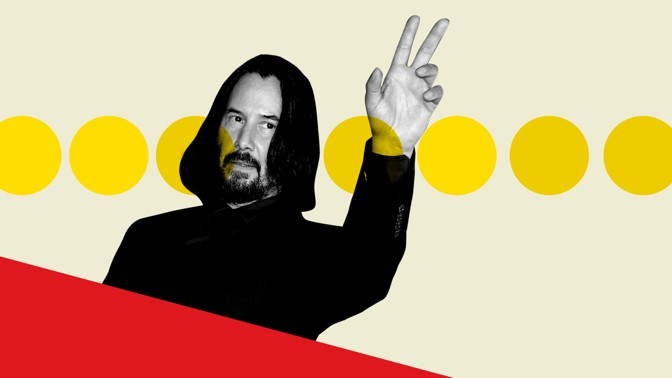
Tonight’s film: Speed (1994)
All week, we’re exploring the multi-decade career of Keanu Reeves, by revisiting five essential films. The second pick in our series is the ’90s classic Speed. Our critic David Sims explains:
Reeves had made only one other action movie before Speed—1991’s Point Break, the Kathryn Bigelow classic that helped define him as more than a striking teen star. But in Point Break, he was playing a cheerful former football player with a puppy-dog smile, whereas Speed felt a little more geared toward Reeves’s grown-up persona. As the hero cop Jack Traven, he’s icy and calm, even when thrust into the truly ludicrous scenario of trying to save the passengers of a bus that will explode if it slows down. Reeves’s strange serenity is what distinguishes him in so many of the action hits that followed—the Matrix films, Constantine, John Wick. But in Speed, that quality is particularly elemental, an alpha heroism with none of the usual macho bravado.
Participate in the discussion using the Twitter hashtag #AtlanticMovieClub or by replying to this email with your thoughts. Be sure to check back tomorrow for the next pick.
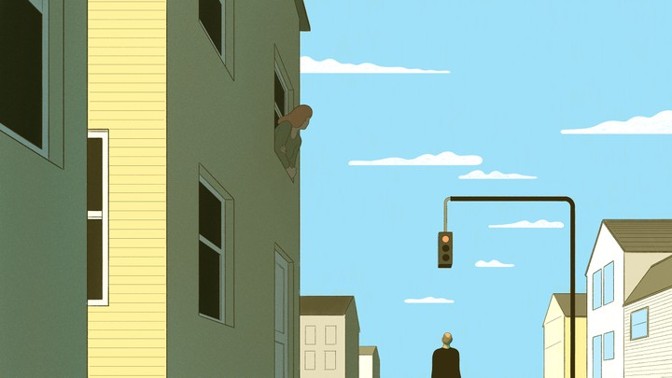
Every Monday, Lori Gottlieb answers questions from readers about their problems, big and small. This week she advises a reader whose husband thinks social-distancing measures are too extreme:
He’s being way too lax about things, and whenever we try to talk about it, we have a fight.
Read the rest, and Lori’s response. Write to her anytime at dear.therapist@theatlantic.com
This email was written by Caroline Mimbs Nyce, with help from Isabel Fattal, and edited by Michael Owen.
Sign yourself up for The Daily here
Reckitt Benckiser, the UK-based maker of Lysol and Dettol, issued the first warning, saying: "Under no circumstance should our disinfectant products be administered into the human body (through injection, ingestion or any other route)." "Bleach and other disinfectants are not suitable for consumption or injection under any circumstances," it said. The comments came after Trump said at a Thursday news briefing that scientists should explore whether inserting ultraviolet light or disinfectant into the bodies of people infected with the disease caused by the novel coronavirus would help.
from Yahoo News - Latest News & Headlines https://ift.tt/2zv1ZrB
Dale Zorn initially defended his actions, saying it was part of ‘our history’, but eventually apologized after widespread outrageA Republican politician in Michigan has apologized after wearing a face mask that appeared to depict the Confederate flag, an image offensive to many Americans as a symbol of racism and slavery.Michigan state Senator Dale Zorn wore the mask during a Senate vote at the state capitol in Lansing on Friday. He initially defended his actions, saying his wife had made the mask and that it depicted the flag of Tennessee or Kentucky.“I told my wife it probably will raise some eyebrows, but it was not a Confederate flag,” Zorn told Lansing TV station WLNS on Friday.He went on to add: “Even if it was a Confederate flag, you know, we should be talking about teaching our national history in schools and that’s part of our national history and it’s something we can’t just throw away because it is part of our history.”When Zorn was asked what the meaning of the Confederate flag is, he replied “the Confederacy”.> This is Dale Zorn. He is an elected member of the Michigan Senate. He wore a Confederate Flag mask on the floor of the Michigan Senate. Then he tried to tell us he didn't. > > THIS IS MICHIGAN, NOT MISSISSIPPI! > > Get that trash outta here. pic.twitter.com/uTOaBzweTO> > — Bryan Newland (@RealBNewland) April 25, 2020In fact, displaying the Confederate flag, or other symbols of the slave-owning south during the American civil war, is usually seen as racist. While some advocates claim they are celebrating southern identity and heritage, it is widely seen as a racist symbol deeply offensive to black Americans. Nor is it just flags. There is an ongoing campaign to remove Confederate war statues from public display or rename streets and buildings which commemorate Confederate generals or politicians.After sparking widespread outrage, Zorn issued an apology on Saturday.“I’m sorry for my choice of pattern on the face mask I wore yesterday on the Senate floor. I did not intend to offend anyone; however, I realize that I did, and for that I am sorry. Those who know me best know that I do not support the things this pattern represents,” he wrote on Twitter. “My actions were an error in judgment for which there are no excuses and I will learn from this episode.”A spokesperson for Michigan’s senate majority leader, Republican Mike Shirkey, said that Shirkey “would not support or encourage any senator to display an insensitive symbol on the Senate floor”.The leader of the Democrats in the Michigan senate, Jim Ananich, said: “I’m just really disappointed to see him make a choice that is deeply hurtful to so many people. When he was called out for it, he didn’t seem to even understand or acknowledge what the problem was.”Zorn was in Lansing on Friday to vote on measures that would increase oversight of Michigan governor Gretchen Whitmer’s powers during the Covid-19 pandemic.Michigan is one of a number of states that have attracted protests against stay-at-home orders during the pandemic. Zorn said he supported bipartisan oversight of Whitmer’s actions.
from Yahoo News - Latest News & Headlines https://ift.tt/3562Cn7